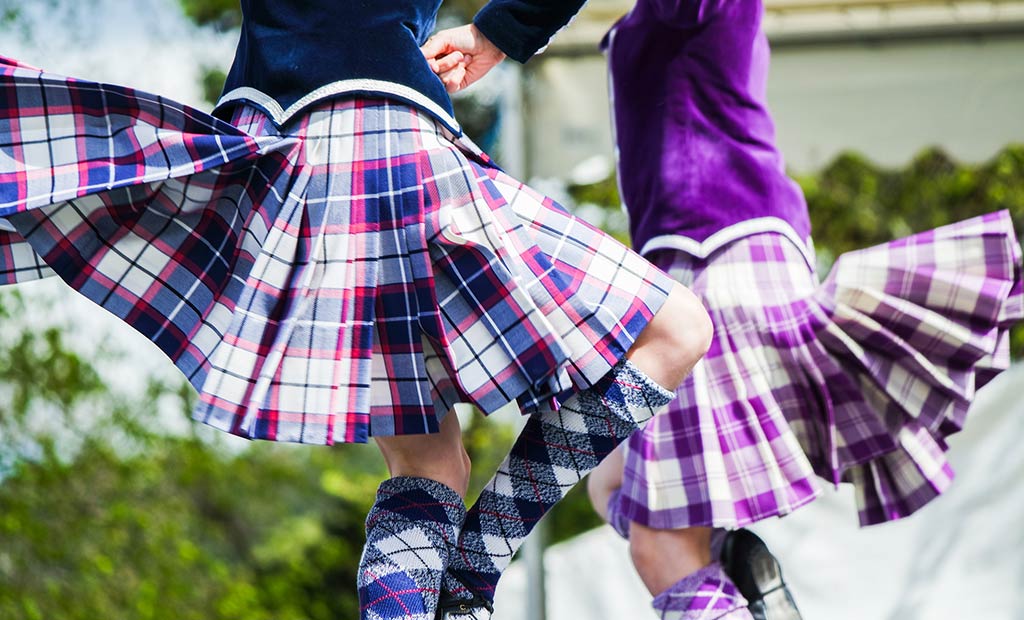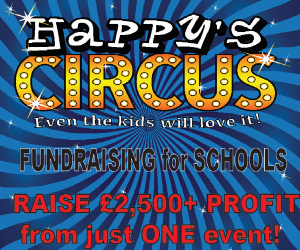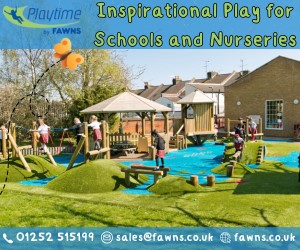A ceilidh (pronounced ‘kaylee’) is a traditional Gaelic gathering, involving music and dancing. It’s a surefire way to everyone up on their feet regardless of how little rhythm they have!
Step-by-step
- Book a local caller at least three months before your planned date. Prices start at around £300 for a caller playing recorded music, or live ceilidh bands charge an average of £435. Suppliers will need their own public liability insurance, and any electrical equipment should be PAT tested.
- Book a venue. You will need enough floor space for people to dance without feeling cramped (based on everyone standing with their arms outstretched). The capacity of your venue may limit the number of tickets you can sell, so factor this into your costings.
- Consider what food and refreshments you will offer. Have an interval on the night, allowing food to be served and giving people a chance to mingle, before they get back up again for a boogie. Baked potatoes, ploughman’s or chilli are good options.
- Run a raffle, selling tickets on the door as people arrive. Draw and announce the winners at the end of the interval. If you don’t have the time or resources to source prize donations, boost profits by running a 100-square grid.
- Check which licences you need. Read our licensing guide or verify requirements with your local authority. As a rule of thumb, if featuring live or recorded music (where copyright applies), you should obtain PPL and PRS for Music licences (your school should already have these). If you’re serving alcohol you will need a TEN, unless your venue holds a premises licence.
- Since the Live Music Bill came into effect in October 2012, a TEN is no longer required for ‘regulated entertainment’ for amplified live or recorded music an audience of 500.
At least four weeks before the event, publicise with posters. Allow people to buy family tickets, as well as individual tickets.
Tips and advice for running a ceilidh event
- Reviews: Check reviews of local callers in order to gauge how good they are or seek recommendations.
- Children: Make it a family event and encourage adults to bring along their children, after all, they’re usually first on the dance floor!
- Tickets: Assess your costs (venue, band/caller, catering and licences) versus the capacity of your chosen venue. Agree the ticket price. Running a bar and offering food will allow you to increase your ticket price, but if you want to keep things simple, ask people to bring their own drinks and snacks. Find out how to sell tickets online.
- Interval: Have a half-time break, giving dancers a chance to catch their breath, chat to friends and re-fuel. How about running some games too?
- Variations: A ceilidh, barn dance and hoedown are similar, with people dancing together either in couples or small groups. Some dances involve individuals moving on to new partners as the dance progresses, making this a great event for making new friends! A ceilidh is associated with Scottish or Irish (ceili) music, while a barn dance is based on English dancing. Traditionally, a ceilidh would have other entertainment, such as singing, interspersed with the dancing. A hoedown often has an American feel, with checked shirts, cowboy hats and country-style music.
Ceilidh success story
‘We decided to hold a ceilidh to raise funds, but also to provide families the opportunity to make new friends at a price that was affordable. So tickets were offered at £5 per family (2 adults and up to 3 children) or separately at £2 per adult and £1 per child for single parents. To establish timings, we worked back from the time we thought the Key Stage 2 children/parents would want to finish up and then split the night into sections – doors opened at 5.15pm, food at 6pm, round one of dancing, a break to get drinks/snacks then round two of dancing, finishing at 8pm. We wanted to offer a quality, good-value meal to encourage families to have a night out together. We offered baked potatoes with fillings (butter, cheese, baked beans or chilli), pasta and tomato sauce and hot dogs. We set up a tuck shop (away from the bar!), serving soft drinks, crisps and chocolate bars. Year 6 children ran the tuck shop with a PTA supervisor. The night was an amazing success, with many families staying longer than intended. We raised £300 and have already run a successful barn dance with the same format.’
Nicky Waller, chair of Lower Park School PTA in Poynton, Cheshire
See more
- Take a look at our licensing guide
- Read our FAQs on first aid
- Read our risk assessments for PTAs FAQs
- Read our FAQs on raffles
- Boost profits by running some games
- See all our step-by-step guides
The above is intended as guidance only. We recommend that you contact the relevant organisations with specific reference to insurance, legal, health and safety and child protection requirements. Community Inspired Ltd cannot be held responsible for any decisions or actions taken by a PTA, based on the guidance provided.




.gif)




